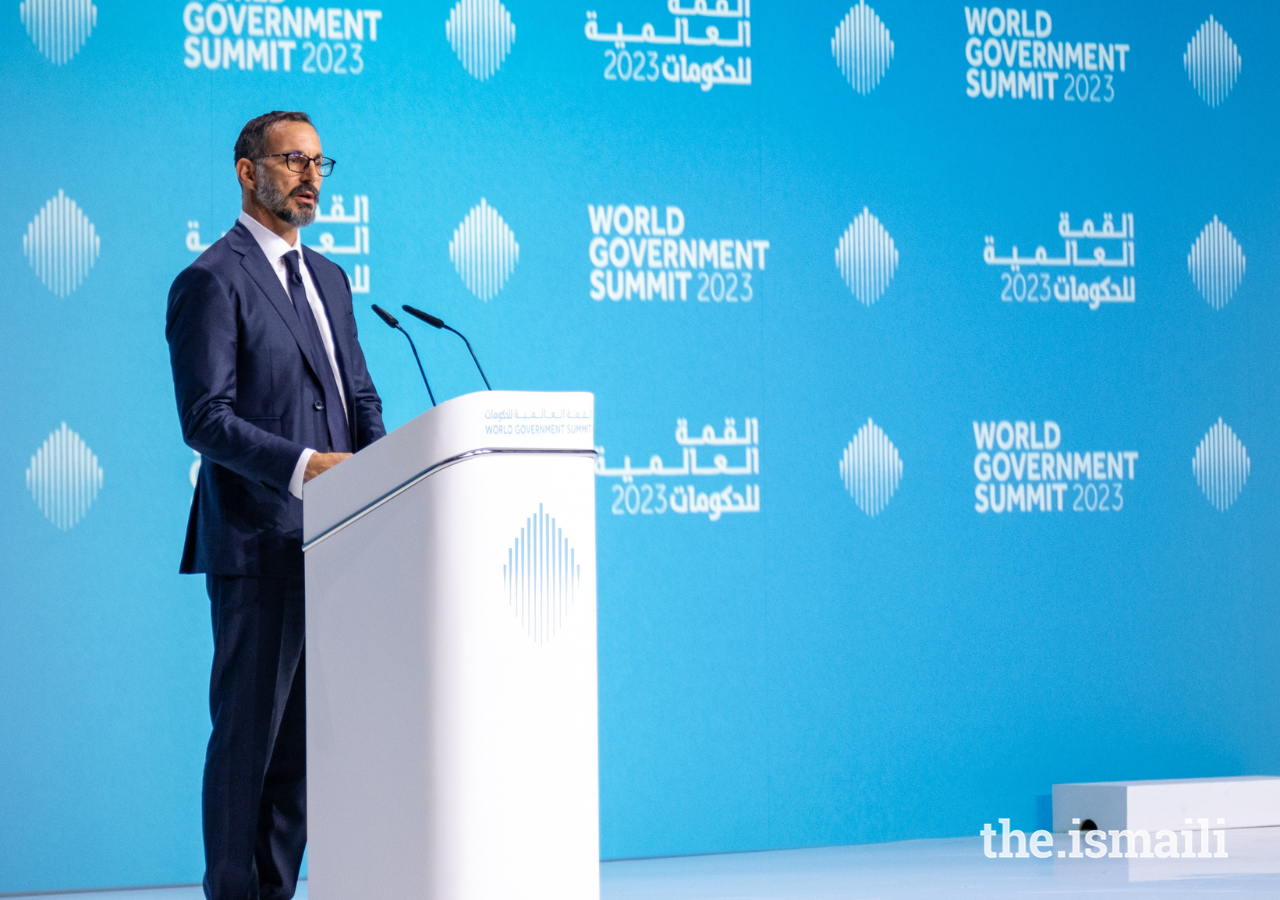Speaking to an audience of distinguished guests from government, business, academia, and civil society, Prince Rahim noted the urgent need for cities to help tackle climate change.
“People are on the move like never before,” said Prince Rahim in his remarks. “We are fast becoming an urban world. And the scale and pace of this change is breathtaking.”
It is estimated that 80 percent of the world’s population will live in cities by the middle of this century. The challenges of rapid urbanisation have specific and acute implications for the developing world, where populations are growing and urbanising fastest, and the effects of climate change are hitting hardest.
“How we plan, design, and manage cities in the developing world therefore will be of vital importance, both for our fragile planet and for humanity,” added Prince Rahim.
Global City Design and Sustainability is one of six key themes on the agenda at this year’s World Government Summit. Established in 2013 by His Highness Sheikh Mohammed bin Rashid Al Maktoum, Vice President and Prime Minister of the UAE and Ruler of Dubai, the Summit is a global knowledge exchange platform dedicated to shaping the future of governments. Its activities focus on harnessing innovation and technology to solve the universal challenges facing humanity.
While cities today occupy only three percent of the Earth’s land, they account for 80 percent of energy consumption and more than 70 percent of greenhouse gas emissions.
“Because cities will play such a massive role in the coming decades, they need not only to anticipate and adapt to climate change, but they must also contribute to its mitigation,” suggested Prince Rahim. “Government, business, and civil society must work together to unlock the best possible future for our cities.”
AKDN’s efforts in this regard demonstrate the value of successful partnerships between such entities to improve the quality of life. Citing AKDN’s work over many decades, Prince Rahim highlighted its first-hand experience in preserving, restoring, and developing the built environment — not only to honour cultural heritage, but also to lay environmentally sustainable foundations for economic and social progress.
This work is underpinned by the ethics and traditions of Islam.
“The Qur’an teaches us that as God’s noblest creation, humankind is entrusted with the stewardship of all that is on Earth, and that each generation must leave for its successors a wholesome and healthy social and physical environment,” explained Prince Rahim.
“Stewardship of the environment, care for the natural world, sharing of resources, recognition of beauty as a divine blessing, and an environmental ethic are the principles that helped guide the planning of early Muslim cities.”
These principles have similarly inspired AKDN’s contemporary efforts, and continue to do so. A case in point is Al-Azhar Park in Cairo. Since it opened in 2005, the park project has offered a large green space in a densely populated city, has absorbed hundreds of tonnes of carbon dioxide every year, and has significantly contributed to an improvement in the quality of life of the local population.
Al-Azhar Park offers a creative model for urban planners to design environments where local communities are set up to thrive in harmony with the natural world. Other such models and ideas are urgently required to address the challenges of urbanisation.
“The World Government Summit is a fantastic opportunity to raise our common ambitions,” concluded Prince Rahim, “to share big ideas, and to inspire positive action in global city design to build a better, more harmonious, and more environmentally sustainable future for humanity and for our planet.”








